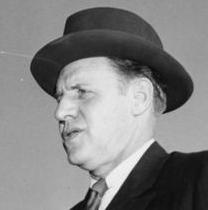Robert D. Murphy
| Robert Murphy |
 |
|
| Chair of the Intelligence Oversight Board
|
In office
March 11, 1976 – May 5, 1977 |
| President |
Gerald Ford
Jimmy Carter
|
| Preceded by |
Position established |
| Succeeded by |
Thomas Farmer |
| Under Secretary of State for Political Affairs |
In office
August 14, 1959 – December 3, 1959 |
| President |
Dwight Eisenhower |
| Preceded by |
Position established |
| Succeeded by |
Livingston Merchant |
| Assistant Secretary of State for International Organization Affairs |
In office
July 28, 1953 – November 30, 1953 |
| President |
Dwight Eisenhower |
| Preceded by |
John Hickerson |
| Succeeded by |
David Key |
| United States Ambassador to Japan |
In office
May 9, 1952 – April 28, 1953 |
| President |
Harry Truman
Dwight Eisenhower
|
| Preceded by |
Joseph Grew |
| Succeeded by |
John Allison |
| United States Ambassador to Belgium |
In office
November 29, 1949 – March 19, 1952 |
| President |
Harry Truman |
| Preceded by |
Alan Kirk |
| Succeeded by |
Myron Cowen |
| Personal details |
| Born |
(1894-10-28)October 28, 1894
Milwaukee, Wisconsin, U.S.
|
| Died |
January 9, 1978(1978-01-09) (aged 83)
New York City, New York, U.S.
|
| Spouse(s) |
Mildred Claire Taylor (1921–1974)
|
| Children |
3 (including Rosemary) |
| Education |
Marquette University (BA)
George Washington University (LLB, LLM)
|
| Awards |
Distinguished Service Medal
Croix de Guerre
Order of the Rising Sun
Order of Leopold (Belgium)
Order of Isabella the Catholic
National Security Medal
|
|
Robert Daniel Murphy (October 28, 1894 – January 9, 1978) was an American diplomat.
Born in Milwaukee, Wisconsin, Murphy began his federal career at the United States Post Office (1916) then moved to be cipher clerk at the American Legation in Bern, Switzerland (1917). He was admitted to the U.S. Foreign Service in 1921. Among the several posts he held were Vice-Consul in Zürich and Munich, consul in Seville, consul in Paris from 1930 to 1936, and chargé d’affaires to the Vichy government. He was also the one-time State Department specialist on France.
In February 1941, Murphy negotiated the Murphy-Weygand Agreement, which allowed the United States to export to French North Africa in spite of the British blockade and trade restrictions against the Vichy-governed area.
In autumn of 1942, at President Franklin D. Roosevelt's behest, Murphy investigated conditions in French North Africa in preparation for the Allied landings – Operation Torch, the first major Western Allied ground offensive during World War II. He was appointed the President’s personal representative with the rank of Minister to French North Africa. Murphy made contact with various French army officers in Algiers and recruited them to support the Allies when the invasion of French North Africa came.
...
Wikipedia

